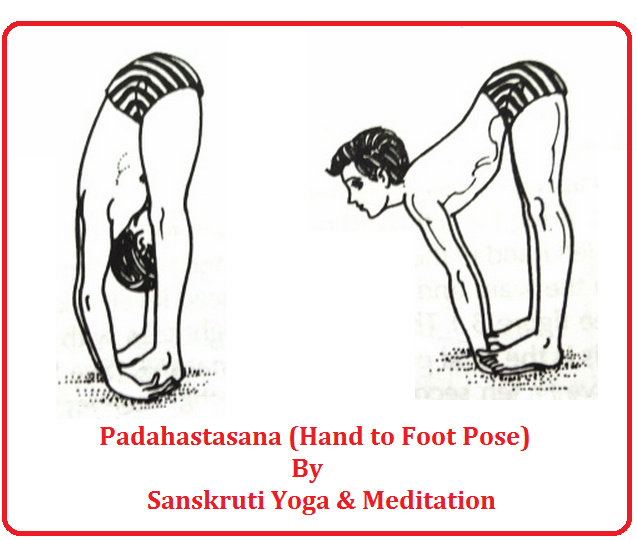If
‘Paschimottanasana’ is attained in stand posture, it becomes a different yogic
exercise known as ‘Padahastasana’. This asana is also called ‘Sthita Paschimottanasana’.
Some people call it ‘Hastapada Mangasana’.
Procedure for Padahastasana
(Hand to Foot Pose):
- Stand erect. Keep the arms by the sides.
- Keep the heels close together. Keep some gap between the feet.
- Raise both the arms. Slowly bend forward at the waist.
- Keep the knees stiff and firm. The legs should not bend at the knees.
- Also do not let the arms bend at the elbows.
- Keep the palms under the feet as shown in the image.
- Slowly exhale while bending low and contract the stomach.
- Now put your forehead between the knees.
- If it is difficult to bend low because of fat around the abdomen, try to bend the body slowly; do not bend the knees.
- Hold this position for two to ten seconds.
Advantages of Padahastasana
(Hand to Foot Pose):
- This asana removes the superfluous fat from the body making the body light.
- It directs the ‘apanvayu’ downwards and out at the anus.
- It has all the benefits of Paschimottanasana.
- It rectifies any unevenness in length in the leg owing to the fracture of any bones either in the leg or the thigh.
Therapeutics:
- Digestive disorders
- Gas trouble
- Weight Loss
- Constipation
- Backache
- Anxiety
- Rheumatism

No comments:
Post a Comment